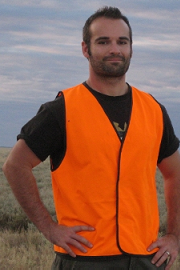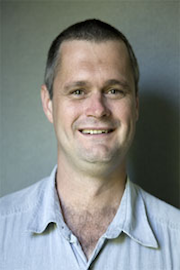Our people
Executive committee

Centre Director
Associate Professor Craig O’Neill
A/Prof. Craig O'Neill is the current director of the Macquarie Planetary Research Centre at Macquarie University, and a world expert in simulating planetary interiors and evolution. His background is in modelling planetary interiors, specifically the interaction of mantle convection with surface processes. More recently he has worked on coupling mantle convection with impacting processes, and has developed numerical tools to facilitate the coupling of early planetary processes with interior evolution. O’Neill’s recent work has focused on the earliest evolution of planetary bodies (including Earth during the Hadean), and this has led to involvement on a NASA-funded project, led by Southwest Research Institute, on crustal habitability during this era.
O'Neill is on the NCI National Merit allocation scheme committee, which assesses proposals for supercomputing time at the National facility, and has been active in delivering open-access computational tools to the broader geodynamics community. O'Neill has been critical in building a planetary-science capacity in Australia, both via MacPlanet and continuing workshops, but also driving community initiatives such as Centre of Excellence bids.

Deputy Director
A/Prof Bruce Schaefer
A/Prof Bruce Schaefer has a long history of research in extraterrestrial materials and planetary formation processes from a geochemical perspective. He has worked on NASA samples returned from the Apollo missions and collaborated extensively with colleagues at Monash university in the recovery of meteorites from remote areas of Australia, including winning a grant from National Geographic to undertake such work. He is part of, and has expanded considerably a world class isotopic analytical group at MQ, with a focus on non-traditional stable isotopes. The application of such tools to Planetary Research (both understanding early Earth in addition to ET materials and early solar system processes) is a major focus of the newly established Macquarie-ThermoFisher Isotope Development Hub, of which he was a driving force in establishing. As such he links the state-of-the-art analytical capabilities with the fundamental research problems into planetary formation and differentiation, and is focused on making Macquarie a destination of preference for future sample return missions from other bodies within the solar system.
Dr Yi Jen Lai
Dr Yi Jen Lai an early career researcher with the MQGA. She specialises in using innovative geochemical techniques to investigate Solar System processes, such as using short-lived radiogenic isotope systems to understand the evolution of the early Solar System. This includes tracing the environments in which different types of nucleosyntheses occur and dating the silicate differentiation of Mars. Her expertise can help modellers and analysts from Geophysics, Physics, and Astronomy to constrain the parameters in their models.
Dr Ediz Cetin
Dr Ediz Cetin is a Senior Lecturer in the Department of Engineering. His research interests are in the areas of Interference detection and localisation, fault-tolerant reconfigurable circuits, adaptive techniques for RF impairment mitigation for communications and Global Navigation Satellite Systems (GNSS) receivers, digitally enhanced, flexible, low-complexity communications and GNSS receivers, low-power design, silicon implementation and testing of processors and embedded systems, bandpass sampling for multi-mode GNSS receivers and software-defined-radio.
Dr Christian Schwab
Dr Chrisitan Schwab is a Senior Lecturer in the Department of Physics and Astronomy and is an internationally recognized expert for precision spectroscopic instrumentation for Exoplanet research. His work focuses the optical design of the most stable high resolution Doppler spectrographs in the world, and ultra-precise laser based wavelength calibrators for these instruments to Exoplanet research to enable the next step Doppler precision to reach the detection limits for habitable, rocky planets. He has developed the optical design or calibration system for, and works with leading international teams to build, a suite of Exoplanet spectrographs on the world’s largest telescopes, including the 2x 8.4m Large Binocular Telescope and the 3.5m WIYN telescope, both in Arizona, the 10.4m Hobby Eberly Telescope in Texas, the 10m Keck and 8m Gemini telescopes in Hawaii, and the 1.23m Mercator telescope in La Palma, Spain. His expertise in precision instrumentation and his access to leading telescope facilities for Exoplanet detection are key to the centre’s strategic positioning.
Advisory committee
Dr Jason Held, CEO
Sabre Astronautics
Founder and CEO of one of the earliest and most successful space industry companies in Sydney. Co-author of the space policy white paper leading to the Australian Space Agency.
Dr Helen Maynard-Casey
ANSTO
World expert on the characterisation of extraterrestrial materials, and expert on the neutron scattering facilities at ANSTO.
Helen Brand
Australian Synchrotron
Senior scientist at the Australian Synchrotron with a planetary background. Brings experience and opportunities of the new beamlines to MQ, to potentially build user groups within the planetary community.
Prof Phil Bland
Curtin University
Leader of the 2018 bid for a national ARC planetary research centre, Director of Australian NASA SSERVI Institute, Laureate Fellow, CI on the Osiris-Rex mission.
Prof Trevor Ireland
ANU
Senior Australian planetary scientist, CI on the Japanese Space Agency missions Hayabusa-I and Hayabusa-II.
Academic staff
| Name | Department | Research areas |
|---|---|---|
| A/Prof. Olivier Alard | Department of Earth & Environmental Sciences | In-situ geochemistry (and petrology) of terrestrial and extra-terrestrial mafic and ultramafic rocks. |
| Prof. Juan Carlos Afonso | Department of Earth & Environmental Sciences | Planetary geophysics and modelling. |
| Dr John Creech | Department of Earth & Environmental Sciences | High precision isotope analyses of meteorites. |
| Prof. Orsola De Marco | Department of Physics & Astronomy | Theory and observations of old stars and stars that interact with one another. |
| Prof. Stephen Foley | Department of Earth & Environmental Sciences | High-pressure experiments on planetary interiors. |
| Prof. Simon George | Department of Earth & Environmental Sciences | Biomarkers of earliest life. |
| Dr Anthony Horton | Australian Astronomical Optics | Design and development of optical-infrared imaging and spectroscopic instrumentation. |
| Dr. David Inglis | Department of Engineering | Microfluidics, mechatronics and robotics. |
| Dr Lucy McGee | Department of Earth & Environmental Sciences | Geochemical characterisation of igneous material, using major and trace elements, in addition radiogenic and radioactive isotope ratios. |
| A/Prof. Tracy Rushmer | Department of Earth & Environmental Sciences | Deformation of planetary materials, core formation. |
| A/Prof. Sam Reisenfeld | Department of Engineering | Cognitive radio networks, adaptive communication systems, direction of arrival estimation, and satellite communications. |
| Dr Lee Spitler | Department of Physics & Astronomy | Formation of galaxies and evolution through cosmic times. |
| Prof. Simon Turner | Department of Earth & Environmental Sciences | U-series systematics of meteoritic and terrestrial material. |
| Prof. Mark Wardle | Department of Physics & Astronomy | Formation of planetary systems. |
